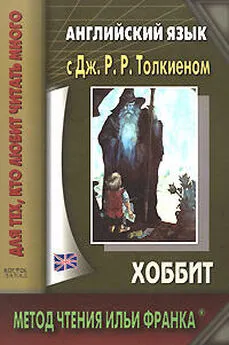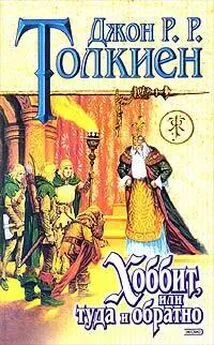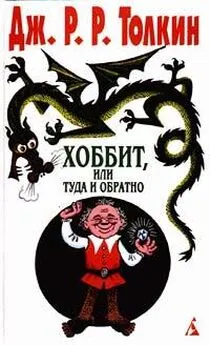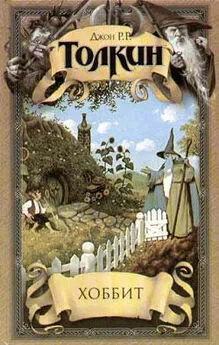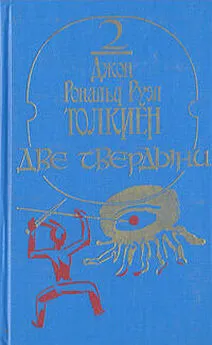Джон Толкиен - Английский язык с Дж. Р. Р. Толкиеном. Хоббит
- Название:Английский язык с Дж. Р. Р. Толкиеном. Хоббит
- Автор:
- Жанр:
- Издательство:АСТ, Восток-Запад
- Год:2008
- Город:Москва
- ISBN:978-5-17-048593-2, 978-5-478-00597-9
- Рейтинг:
- Избранное:Добавить в избранное
-
Отзывы:
-
Ваша оценка:
Джон Толкиен - Английский язык с Дж. Р. Р. Толкиеном. Хоббит краткое содержание
В книге предлагается произведение на английском языке Джона Р. Р. Толкиена «Хоббит», адаптированное (без упрощения текста оригинала) по методу Ильи Франка. Уникальность метода заключается в том, что запоминание слов и выражений происходит за счет их повторяемости, без заучивания и необходимости использовать словарь.
Пособие способствует эффективному освоению языка, может служить дополнением к учебной программе.
Предназначено для студентов, для изучающих английский язык самостоятельно, а также для всех интересующихся английской культурой.
Пособие подготовила Ольга Ламонова.
Английский язык с Дж. Р. Р. Толкиеном. Хоббит - читать онлайн бесплатно полную версию (весь текст целиком)
Интервал:
Закладка:
“Good heavens (Боже мой)!” growled Beorn (прорычал Беорн). “Don’t pretend that goblins can’t count (не делайте вид, что гоблины не умеют считать). They can (они умеют). Twelve isn’t fifteen (двенадцать — это не пятнадцать) and they know it (и они знают это). ”
“And so do I (и я тоже). There were Bifur and Bofur as well (там еще так же были Бифур и Бофур). I haven’t ventured to introduce them before (я не рискнул представить их раньше), but here they are (но вот они). ”
firework [ˈfaɪǝwǝ: k] impression [ɪmˈpreʃ (ǝ) n] underneath [ʌndǝˈni: Ɵ]
“I wish I had been there! I would have given them more than fireworks!” “Well, ” said Gandalf very glad to see that his tale was making a good impression, “I did the best I could. There we were with the wolves going mad underneath us and the forest beginning to blaze in places, when the goblins came down from the hills and discovered us. They yelled with delight and sang songs making fun of us. Fifteen birds in five firtrees …”
“Good heavens!” growled Beorn. “Don’t pretend that goblins can’t count. They can. Twelve isn’t fifteen and they know it. ”
“And so do I. There were Bifur and Bofur as well. I haven’t ventured to introduce them before, but here they are. ”
In came Bifur and Bofur (вошли Бифур и Бофур). “And me (и я)!” gasped Bombur pulling up behind (выдавил из себя Бомбур, догоняя /их — Бифура и Бофура/, появляясь следом; topullup — останавливать (ся), сдерживать (ся), настигать, догонять, behind — сзади, позади ). He was fat (он был толстым), and also angry at being left till last (и также рассерженным, что его оставили до самого конца; last — после всех, на последнем месте ). He refused to wait five minutes (он отказался ждать пять минут), and followed immediately after the other two (и последовал немедленно за другими двумя).
“Well, now there are fifteen of you (итак, теперь вас пятнадцать); and since goblins can count (и так как гоблины умеют считать), I suppose that is all (я полагаю, что это все) that there were up the trees (которые сидели там вверху, в деревьях). Now perhaps we can finish this story (теперь, возможно, мы уже можем закончить эту историю) without any more interruptions (больше без помех; interruption — перерыв, вмешательство ). ” Mr. Baggins saw then (теперь мистер Бэггинс понял: «увидел») how clever Gandalf had been (каким умным оказался Гэндальф). The interruptions had really made Beorn more interested in the story (эти помехи действительно сделали Беорна более интересующимся этой историей = заинтриговали Беарна), and the story had kept him (и сама история удержала его) from sending the dwarves off at once (от того, чтобы прогнать гномов немедленно; to send — послать; to send off — отослать ) like suspicious beggars (как подозрительных попрошаек). He never invited people into his house (он никогда не приглашал людей в свой дом), if he could help it (если только он мог). He had very few friends (у него было очень мало друзей) and they lived a good way away (и они жили очень далеко); and he never invited more than a couple of these (и он никогда не приглашал больше, чем пару из них) to his house at a time (в свой дом одновременно; at a time — разом, сразу ). Now he had got fifteen strangers sitting in his porch (а теперь пятнадцать незнакомцев сидели у него на крыльце)!
interruption [ɪntǝˈrʌpʃ (ǝ) n] suspicious [sǝˈspɪʃǝs] beggar [ˈbeɡǝ]
In came Bifur and Bofur. “And me!” gasped Bombur pulling up behind. He was fat, and also angry at being left till last. He refused to wait five minutes, and followed immediately after the other two.
“Well, now there are fifteen of you; and since goblins can count, I suppose that is all that there were up the trees. Now perhaps we can finish this story without any more interruptions. ” Mr. Baggins saw then how clever Gandalf had been. The interruptions had really made Beorn more interested in the story, and the story had kept him from sending the dwarves off at once like suspicious beggars. He never invited people into his house, if he could help it. He had very few friends and they lived a good way away; and he never invited more than a couple of these to his house at a time. Now he had got fifteen strangers sitting in his porch!
By the time the wizard had finished his tale (к тому времени, как волшебник закончил свою историю) and had told of the eagles’ rescue (и рассказал о спасении орлами) and of how they had all been brought to the Carrock (и о том, как их всех доставили на скалу Каррок; to bring (brought) — приносить ), the sun had fallen behind the peaks of the Misty Mountains (солнце упало за вершины Мглистых Гор) and the shadows were long in Beorn’s garden (и тени были уже длинными в саду Беорна).
“A very good tale (очень хорошая история)!” said he. “The best I have heard for a long while (лучшее: «самая лучшая /история/», что я слышал, за очень долгое время; good-better-the best — хороший, лучший, наилучший ). If all beggars could tell such a good one (если бы все попрошайки могли рассказывать такие хорошие истории), they might find me kinder (они могли бы обнаружить, что я добрее: «найти меня более добрым»). You may be making it all up, of course (вы, конечно, может быть, ее выдумываете /от начала до конца/), but you deserve a supper for the story (но вы заслуживаете ужин за такую историю) all the same (тем не менее: «все то же самое»). Let’s have something to eat (давайте что-нибудь поедим)!”
“Yes, please (да уж, пожалуйста)!” they all said together (сказали они все вместе). “Thank you very much (спасибо вам большое)!”
Inside the hall it was now quite dark (в зале теперь было уже очень темно; inside — внутри ). Beorn clapped his hands (Беорн хлопнул ладонями), and in trotted four beautiful white ponies (и вбежали рысцой четыре прекрасных белых пони) and several large long-bodied grey dogs (и несколько больших /длиннотелых/ серых собак; body — тело, туловище ). Beorn said something to them in a queer language (Беорн сказал что-то им на странном языке) like animal noises turned into talk (/это были/ как будто животные звуки, превращенные в речь). They went out again (они снова вышли) and soon came back (и вскоре вернулись) carrying torches in their mouths (неся факелы в пастях), which they lit at the fire (которые они зажгли от огня; to light (lit, lighted) — зажигать, освещать ) and stuck in low brackets (и закрепили их на низких кронштейнах/держателях; to stick (stuck) — втыкать, вкалывать, всовывать ) on the pillars of the hall (на колоннах в зале) about the central hearth (вокруг центрального очага).
The dogs could stand on their hind-legs (эти собаки могли стоять на своих задних лапах) when they wished (когда они этого хотели), and carry things with their fore-feet (и носить вещи в своих передних лапах). Quickly they got out boards and trestles (быстро они взяли доски и кузлы; to get (got) out — выходить, бежать /из тюрьмы/, зд. — вынимать, вытаскивать ) from the side walls (стоявшие у /боковых/ стен) and set them up near the fire (и установили их рядом с огнем).
rescue [ˈreskju: ] eagle [ˈi: ɡ (ǝ) l] hind [haɪnd] fore [fɔ:]
By the time the wizard had finished his tale and had told of the eagles’ rescue and of how they had all been brought to the Carrock, the sun had fallen behind the peaks of the Misty Mountains and the shadows were long in Beorn’s garden.
“A very good tale!” said he. “The best I have heard for a long while. If all beggars could tell such a good one, they might find me kinder. You may be making it all up, of course, but you deserve a supper for the story all the same. Let’s have something to eat!”
“Yes, please!” they all said together. “Thank you very much!”
Inside the hall it was now quite dark. Beorn clapped his hands, and in trotted four beautiful white ponies and several large long-bodied grey dogs.
Beorn said something to them in a queer language like animal noises turned into talk. They went out again and soon came back carrying torches in their mouths, which they lit at the fire and stuck in low brackets on the pillars of the hall about the central hearth.
The dogs could stand on their hind-legs when they wished, and carry things with their fore-feet. Quickly they got out boards and trestles from the side walls and set them up near the fire.
Then baa-baa-baa! was heard (затем послышалось блеяние: «бе-бе-бе»), and in came some snow-white sheep (и вошли белоснежные овцы) led by a large coal — black ram (ведомые огромным угольно-черным бараном; to lead (led) — вести, показывать путь ). One bore a white cloth (одна несла белую скатерть; to bear (bore, borne) — переносить, нести ) embroidered at the edges with figures of animals (с вышитыми по краям фигурками животных); others bore on their broad backs (другие несли на своих широких спинах) trays with bowls (подносы с мисками) and platters (и деревянными тарелками) and knives (и ножами) and wooden spoons (и деревянными ложками), which the dogs took (которые собаки взяли) and quickly laid on the trestle tables (и быстро разложили на столах /устроенных/ на кузлах). These were very low (эти /столы/ были очень низкими), low enough even for Bilbo (достаточно низкие даже для Бильбо) to sit at comfortably (чтобы сидеть за ними с удобством). Beside them a pony pushed two low-seated benches (рядом с ними пони подтолкнул две низкие скамейки; to seat — сажать, усаживать ) with wide rush-bottoms (с плетенными из тростника сиденьями; rush — тростник, камыш ) and little short thick legs (и небольшими короткими массивными ножками) for Gandalf and Thorin (для Гэндальфа и Торина), while at the far end (в то время, как к дальнему концу /стола/) he put Beorn’s big black chair (он /пони/ поставил большой черный стул для Беорна) of the same sort (такого же вида) (in which he sat (в котором он сидел) with his great legs stuck far out under the table (и его огромные ножищи вытягивались далеко под столом; to stick (stuck) out — высовывать, выставлять, торчать )). These were all the chairs he had in his hall (это были все стулья, которые были в его зале), and he probably had them low like the tables (и они были у него низкими, как и столы, возможно) for the convenience of the wonderful animals (для удобства этих удивительных животных) that waited on him (которые прислуживали ему; to wait — ждать, ожидать, to wait on smb. — обслуживать, служить кому—либо ). What did the rest sit on (на что же уселись все остальные)? They were not forgotten (и о них не забыли; to forget (forgot, forgotten) — забывать, не помнить ). The other ponies came in (вошли другие пони) rolling round drum — shaped sections of logs (вкатывая круглые, в форме барабанов, чурбанчики: «части бревен»; drum—барабан ), smoothed and polished (гладкие и отполированные), and low enough even for Bilbo (и достаточно низкие даже для Бильбо); so soon they were all seated at Beorn’s table (так что вскоре они все расселись за столом Беорна), and the hall had not seen such a gathering for many a year (и этот зал не видывал таких собраний уже многие годы).
Читать дальшеИнтервал:
Закладка:
